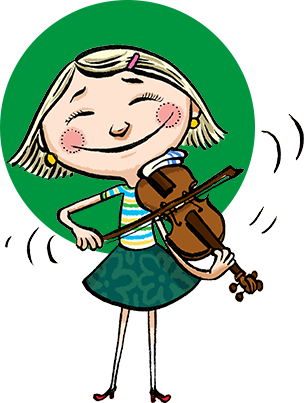
Music is our oldest specialization; traditionally it has had the largest number of students. The specialization offers lessons not only in playing a wide range of musical instruments including keyboards, strings and winds, but also in singing.
The Music Department incorporates two different forms of music education: interpretation and creation of music, and music reception and reflection in a variety of forms. That is why the school offers both individual and group lessons.
Music education should start quite early, ideally around five years of age, with the preparatory stage. Our school offers preparatory lessons for one or two years of study. The preparatory education helps children learn to navigate the world of music, its terminology and its notation. It also develops their natural abilities of intonation and rhythm. We use nursery rhymes and simple folk songs to develop and deepen memory, music imagination, intonation and the connection between melody, rhythm and movement. We use Orff Instruments to develop children’s abilities of elementary improvisation and to support distinctive self-expression.
Children learn to play the musical instrument of their choice in individual lessons, during which they explore both music interpretation and music creation. However, they also attend music theory lessons, which are mandatory. Music theory is essential for understanding music as art as a whole.
Music Theory is a collective subject; it explores the nature of music and its effects on human beings. It is focused on music perception, its structure, laws, and forms. It is an indispensable part of music education at the elementary school of arts.
The purpose of Music Theory is to arouse a general interest in music, to develop musicality in children (musical ear, rhythmic awareness, musical imagination and memory), and to introduce to children music theory, especially for the purpose of playing a musical instrument. Music Theory also teaches children to understand the language of music. All these components activate and improve music awareness.
Music Theory is structured into three mutually intertwined domains:
Lessons are organised around cooperative activities of the teacher and pupils. We guide children in singing, listening, and instrumental and movement activities in harmony with their natural physiological and emotional development.